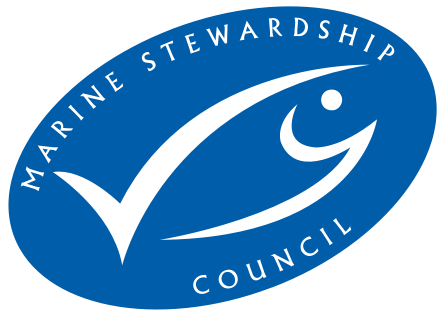CHALLENGE
Good branding has the power to differentiate your brand from the competition, increase awareness and connect: with customers, talent, partners who identify with your brand’s values and attitude.

Solution
Outdated or interchangeable branding inevitably reflects on your products, performance, company – as good, innovative, high quality as they may be. This makes it difficult to reach target groups.

Services
To help you show what your brand really stands for, Helder translates your brand strategy into brand design and messaging: for consistent communication externally and internally.
Brand Consulting
We work with you to develop a strategic brand mission statement that positions and differentiates your brand and optimizes its external perception.
Brand Naming
We develop a concise and legally viable brand name that differentiates and creates awareness.
Brand Design
We develop a logical design system that makes visible to your target audience what your brand stands for.
Team
To ensure that strategy and design correspond optimally with each other, we have set up Helder in an interdisciplinary and international way.

Dr. Birgit Joest
Co-Founder, Strategy Director

Maurits den Held
Co-Founder, Creative Director

Marina Mengis
Brand Strategy

Leonie Ringeler
Design

Simon Hermann
Design

Ellen Baierlein
Design
Clients
Brands that work with us
Three steps to a brand identity that makes a difference
Brand Workshop
We translate your strategic focus into adequate brand design and clear messaging.
Brand Design
We translate your strategic focus into adequate brand design and clear messaging.
Brand Launch
You launch a brand that makes a difference: for customers, partners, talents.
Brand Identity
Over the last 20 years, we have developed the Brand Frame from the best brand building methods. This brand strategy model captures the essence of the brand at a glance.
Knowledge
Beyond brand development, we are committed to raising the value of design through knowledge – so that creatives and brand builders work better together.
Markenglossar
-
Herstellermarke
-
Brand Strategy
-
Handelsmarke
-
Unternehmensmarke
-
Produktmarke
-
Familienmarkenstrategie
-
Einzelmarkenstrategie
-
Brand Naming
-
Naming Briefing
-
Markenanalyse
-
Brand Story
-
Submarke
-
Dachmarke
-
Markenrelaunch
-
Markenbildung
-
Brand Management
-
Markenbindung
-
Markenkommunikation
-
Co-Branding
-
Markenführung
-
Brand Awareness
-
Positioning Cross
-
Buyer Personae
-
Mission Statement
-
Vision Statement
-
Personality Sliders
-
Golden Circle
-
Brand Purpose Board
-
Brand Values Card Deck
-
Markenwerterad
-
Identity Prisma
-
Brand Wheel
-
Brand Wheel
-
Brand Key
-
Brand Audit
-
Brand Purpose
-
Brand Values
-
Claiming
-
Brand Architecture
-
Brand positioning
-
Brand Workshop
-
Brand Naming
-
Brand Design
-
Brand Icons
-
Infographics
-
Logo
-
Brand Website
-
Brand Imagery
-
Brand Guidelines
-
Brand Colors
Cases
Lifestyle, Tech and Community Brands for which we have translated strategy into design.
Generic design and messaging diminish the value of your brand.
We help you get the branding your brand deserves.
Good branding is contextually well-founded
It is always based on the brand’s core, its culture, values and competencies.
Good branding creates clarity
It is so striking that the transmitter is identifiable even without a logo.
Good branding differentiates
So that your brand stands out from the competition – and shows that you have confidence in yourself and your counterpart.
Good branding is aesthetic
We use creative means appropriate to your industry, your services and the context.
Good branding shows attitude
So that people identify with your brand: Customers, employees, partners.
Good branding is recognizable
It is so concise that you will be recognized even without the logo.
Good branding is holistic in thought
To ensure that you can use it across all media, it is consistent, comprehensible and modular.
Three steps to a brand identity that makes a difference
Brand Workshop
We translate your strategic focus into adequate brand design and clear messaging.
Brand Design
We translate your strategic focus into adequate brand design and clear messaging.
Brand Launch
You launch a brand that makes a difference: for customers, partners, talents.
What we do not do
Unpaid work
We are ready to go the famous extra mile if both partners are committed. Like our clients, we do not work for free. That is why we do not deliver concepts or designs in the context of unpaid pitches. However, we are happy to answer your questions about what we can do for you. Just contact us!
Unethical projects
We do not work with clients whose values we do not share. This includes companies or institutions that do not respect, disregard or intentionally harm people, animals or the environment, e.g. radical, unconstitutional political organizations, armament or animal fattening companies.
Treat unequally
We see ourselves as partners of our clients. Mutual respect, esteem and eye level are prerequisites for successful cooperation. Of course, this also applies to every applicant and employee, regardless of their
of origin, nationality, age, gender, religious affiliation, sexual identity, physical or mental limitations.
Agenturauswahl
When looking for the right agency for a branding project, there are some criteria that help to make the right choice. We present these here.
What is branding?
The word branding originally meant the marking of herd animals with branding irons. Accordingly, a brand is also to be imprinted with a stamp. What is known in German-speaking countries as branding and brand management encompasses the measures that link a company, product or service with a specific image. To this end, specific communicative and visual messages are developed that pay tribute to this image and stick in the minds of the target group. These include BRAND DESIGN and the brand story.
Why is branding important?
Many companies spend huge amounts of money to place brand messages with marketing measures. Their primary purpose is to generate attention. In contrast, branding is the silent brand ambassador. Branding aims to create a certain feeling in contact with the brand. Ideally, the target group understands at first glance what the brand stands for. A successful branding promotes an emotional connection between brand and people.
What is a branding agency?
Branding agencies are agencies that specialize in branding. A team of strategists and designers work hand in hand to form the strategic, communicative and visual identity of a brand and thus position the brand successfully in the market. Branding agencies thus create the basis for all further communicative measures of the brand.
What does a branding agency do?
A branding agency supports companies and organizations in developing a corporate identity or a brand design or in further developing it in the course of a rebranding.
Developing a brand strategy that pays off on the brand.
For this, the first step is to work out the basics of the BRAND STRATEGY together. This usually takes the form of a BRAND WORKSHOP, in which BRAND PURPOSE, BRAND VALUES and the BRAND ARCHITECTURE are reviewed and defined. Based on this and with the help of a competition and target group analysis, the brand identity agency develops the BRAND POSITIONING. In the case of a brand that is already established in the market, a branding agency uses a so-called BRAND AUDIT to review the brand in terms of its positioning. It identifies the strengths and weaknesses of the branding and looks for drivers for a successful alignment in the market environment. For a start-up or in the course of a rebranding, a brand identity agency develops a suitable BRAND NAME that captures the brand essence and brand promise.
Who can do branding?
Unlike doctors and architects, there are no protected titles or standardized processes in the field of branding. The quality of an agency depends on its own standards and the demands of the clients it wants to satisfy. A list of agencies that offer branding provides guidance on the various options.
In-house team
Larger companies in particular have an independent design department. The idea of commissioning in-house designers with the new branding can be obvious. However, branding is not “only” design, but also requires strategic and communicative expertise. A designer specializing in UX/UI design does not have the expertise needed for branding. One advantage of in-house designers is that they are already very familiar with the brand and its services. However, they sometimes lack the necessary external perspective – the keyword here is operational blindness. It helps to integrate the designers into the branding process – they have to apply the brand design in the end.
Branding agency
A branding agency or brand development agency specializes in brand development. An interdisciplinary team has the necessary strategic and creative skills that play a role in this process. Branding agencies are specialized in the creation of brands. To do this, the brand is viewed as a holistic construct and not from a single perspective such as just website, logo or social media. From the brand identity to the brand name to the design system – here you get a strategically sound brand image from a single source, on which you can build in the long term.
Freelancer
A freelancer can often be less expensive than agencies. They can be a good choice for solopreneurs, associations or non-profit organizations that need branding for a modest budget, for example. Freelance designers, however, are usually skilled in only one discipline, meaning they tend to have primarily design expertise. However, if you are looking for branding support, both strategy and design are essential. When hiring a freelance designer, you should therefore have a concrete idea of the brand personality and the strategic orientation in order to be able to brief correctly, and you should first examine the respective style of the designer to see whether it fits the brand.
Advertising agency
Advertising agencies or so-called full-service agencies often offer an almost unlimited spectrum of communicative services. However, this does not necessarily mean that all disciplines are equally well mastered. Advertising is not branding. Advertising campaigns temporarily highlight a product, a service, an offer. To do this, the brand as sender must be strategically clearly positioned and have an appropriate appearance, and that in turn is the task of branding. Of course, at first glance it is attractive to get all services from a single source, but you should look very carefully to see whether the agency has an understanding of strategic design and can provide appropriate references. When commissioning large advertising agencies or agency networks, it is important to bear in mind that a higher level of staffing on the agency side will be financially calculated accordingly and can prolong coordination processes. In addition, relatively lean budgets do not always receive the same attention as large budgets, i.e., the size of the agency and one’s own company should match. As said before, advertising has above all a different goal than branding. Advertising provides short-term attention, while branding establishes the brand personality in the long term.
When to brand – what are the goals?
The desire or need for branding can have various reasons. It is important to be clear about the goals that are to be achieved with the new or further development of branding. Branding, of course, always has the purpose of differentiating the brand from the competition. A classic situation is, for example, the start-up of a new company or the launch of a new product. Here, the successful establishment of the brand in the market is the number one driver. In the case of existing brands, the further development of the product range, the attraction of talent, the opening up of new markets, a merger with other companies are all reasons for challenging the previous brand presence.
Who participates in a branding project?
To develop a branding, companies in most cases resort to the expertise of branding agencies. Strategists and brand designers work together to create an attractive and coherent brand image. In order for a branding project to be successfully implemented, certain people on the company side should also be involved in the development, if these positions exist within the organization. This corresponds to the set-up of a company – if you are a solopreneur or a small organization commissioning a branding project, the set-up is correspondingly smaller:
- Decision maker: all the work was in vain if in the end the people making the decision are not convinced. Therefore, decision makers should be present at the important milestones from the very beginning.
- Marketing Manager: These people have (hopefully) already dealt intensively with the brand. They know the challenges of communication and therefore provide relevant insight into the day-to-day business. They are an essential part of brand building – they will also work most intensively with the brand concept.
- Sales: People in sales have direct contact with (potential) customers. Their needs, wishes and, if necessary, criticism are essential for the brand strategy and communication.
- Product developer: Branding serves to better communicate a certain performance, i.e. a product or service of a company. Therefore, it is essential to know the characteristics of this product – only then can added value and unique selling points be identified.
- Designers: A brand design must be implemented and lived. If there are designers in the team, it is helpful to involve them in the development process so that they can gain an understanding of the design and understand creative decisions.
- Project Manager:in A branding project brings together various stakeholders inside and outside the company. In order to be able to organize processes efficiently and to define a contact person for the agency, it is good to define a person who has an overview of the project.
CHECKLISTE
Sounds good?
Let’s talk
















